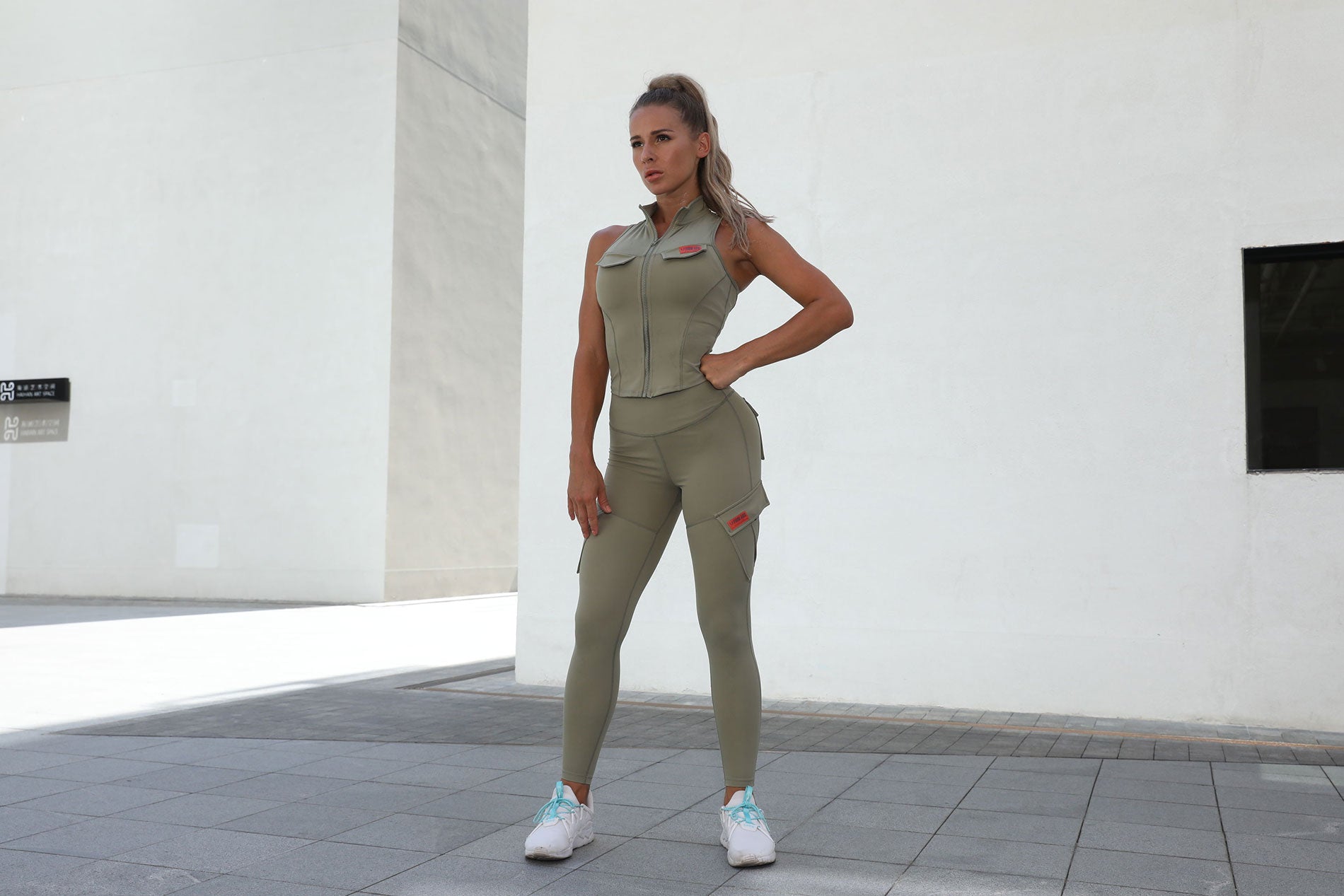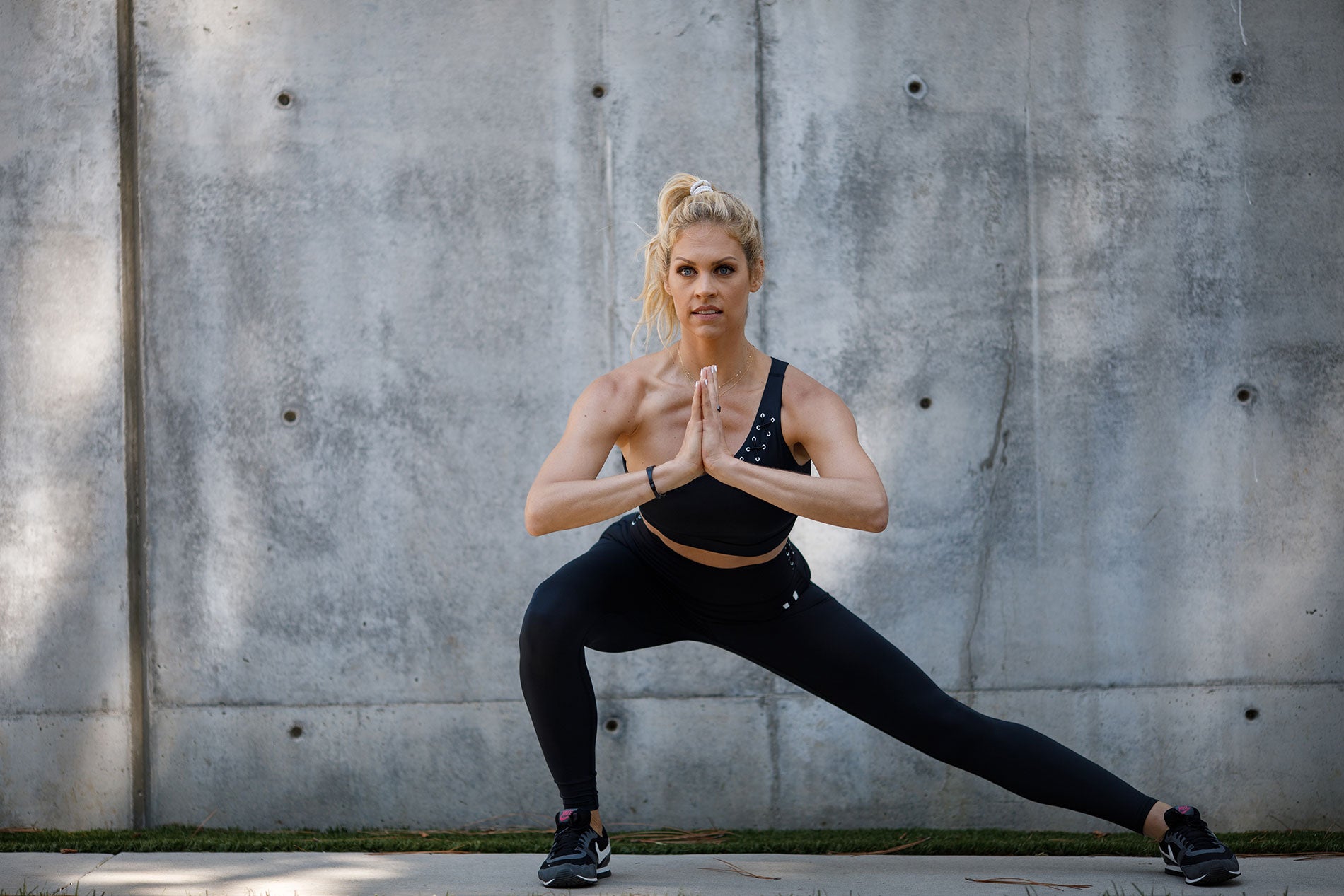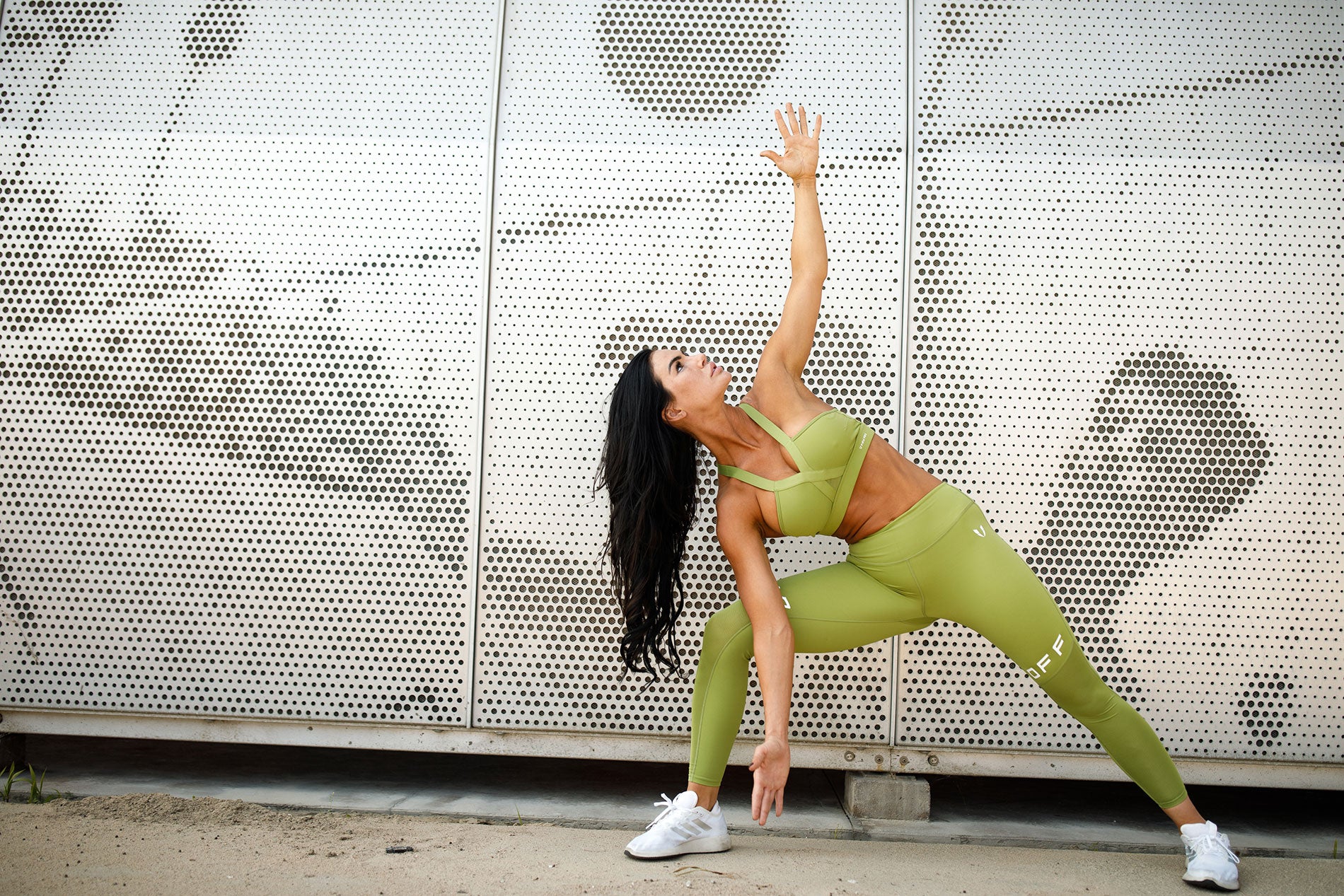
Top 10 tips voor offshore health & wellness
1. Routine: Heb er een
De belangrijkste factor om gemotiveerd te blijven en je aan een trainingsschema te houden, is om een routine te hebben. Dit moet niet alleen op het werk zijn, maar ook thuis. Je lichaam, en belangrijker nog, je geest, snakt naar routine! Ik vind het makkelijker om je aan een trainingsroutine te houden op het werk, omdat de dag al is gestructureerd door de uren die je werkt en wanneer je pauzes neemt, dus dit deel wordt voor je geregeld, of je dat nu leuk vindt of niet. Het enige wat je hoeft te doen, is wat trainingstijd in te plannen rond die andere activiteiten.
2. Het plannen van de zweetsessie
Ik ben een ochtendmens, dus ik heb er altijd de voorkeur aan gegeven om mijn training te doen voordat mijn dienst begint. Als marathonloper doe ik graag cardio-sessies als eerste 's ochtends, maar ik geef ook prioriteit aan krachttraining in mijn fitnessregime omdat het essentieel is voor het behoud van spiermassa. Duurlopen is erg katabool (wat betekent dat het spieren verbrandt in plaats van opbouwt), dus het is erg belangrijk om ook redelijk zware weerstandstraining te doen vanwege de anabole effecten. Het behoud van spiermassa is essentieel naarmate je ouder wordt, want hoe meer spiermassa je hebt, hoe hoger je rustmetabolisme zal zijn (en veel andere voordelen die te talrijk zijn om in dit artikel te noemen). Trainen als eerste in de ochtend is ook ideaal om een routine aan te houden, omdat verstoringen van je dag doorgaans pas komen nadat je bent begonnen met werken. Je kunt beter een comfortabele, zweetabsorberende sporttop en uitstekende elastische sportleggingDit kan er weer toe leiden dat je routine aan het einde van de dag in de war raakt, als je wacht met trainen totdat je klaar bent met werken.
3. De uitvoering zit hem in de voorbereiding
Zorg ervoor dat je je trainingsuitrusting klaar hebt liggen voordat je 's avonds naar bed gaat en dat je precies weet wat je gaat doen als je de volgende ochtend naar de sportschool of het helikopterdek gaat. Een plan hebben om te volgen is één ding minder waar je bewust over na hoeft te denken, wat één excuus minder is om het niet te doen! Daarom helpt een consistente trainingsroutine thuis en op het werk om een solide basis te leggen voor je trainingsplan, waar je ook bent. Als ik thuis ben en de hele dag de tijd heb om mijn cardio- en krachttrainingssessies in te passen, doe ik altijd als eerste 's ochtends cardio en doe ik over het algemeen mijn krachttraining in de middag.
Idealiter is het het beste om de twee te splitsen, vooral als je van plan bent om beide activiteiten met een hoge intensiteit te doen. Omdat beide trainingsmethoden compleet verschillende energiesystemen gebruiken, kan het nadelig zijn om ze allebei tegelijkertijd te trainen. Hoewel beide trainingsprotocollen enigszins worden aangetast in de intensiteit waarmee je traint als je maar één keer per dag kunt trainen, is het onvermijdelijk als je op het werk bent, vanwege tijdgebrek. Daarom plan ik zorgvuldig wat ik doe om de effecten van cardio op mijn krachttraining te minimaliseren. Omdat iedereen anders is en verschillende doelen en redenen heeft om te trainen, is het voor mij niet praktisch om je te vertellen dat je precies moet doen wat ik doe. Om te beginnen wil ik niet afvallen, sterker nog, ik kan het me niet veroorloven om af te vallen, dus dat onderscheidt me waarschijnlijk van 90% van de bevolking. Omdat ik van middelbare leeftijd ben, ligt mijn prioriteit bij het opbouwen en behouden van spiermassa, waarbij marathonlopen gewoon iets leuks is dat ik graag met mijn vrienden doe. Dus ik zal altijd prioriteit geven aan krachttraining boven hardlopen als ik moet kiezen tussen de een of de ander. Maar hiermee heb ik wel een heel werkbaar plan voor mezelf gecreëerd, waarmee ik beide trainingssystemen kan optimaliseren, zodat mijn spiermassa niet in het gedrang komt en ik nog steeds op een hoge genoeg intensiteit op de loopband kan trainen om elk jaar een kwalificatietijd voor de Boston Marathon te halen, en daarnaast ook nog eens intensieve krachttraining kan doen om mijn spiermassa te behouden.Maar hoe ik dat doe, is een onderwerp voor een ander artikel.

4. Voer overal oefeningen uit
Een van de meest kritische factoren in mijn trainingsregime is dat ik, of ik nu thuis of op de rig train, oefeningen doe die ik op beide plekken kan doen. De meeste sportscholen in de stad hebben veel meer verschillende apparaten dan je in een rig-gym krijgt, dus om de altijd belangrijke routine te behouden, probeer ik dezelfde oefeningen op beide plekken te doen. Het heeft geen zin om hightech-fitnessapparaten te gebruiken als je in je pauze traint, maar dan niet dezelfde oefeningen kunt doen als je op de rig bent. Je saboteert je routine direct door dit te doen.
5. Wees geen sukkel en doe je best
Vergeet niet dat u waarschijnlijk meer dan 6 maanden per jaar op het werk bent. Uw training op de boorinstallatie (of in een andere faciliteit) is daarom net zo belangrijk als de training die u thuis volgt. Het is niet hetzelfde als trainen terwijl je een paar weken op vakantie bent - het is voor meer dan de helft van je werkzame leven. Neem het daarom serieuzer dan alleen een "invul", halfslachtige trainingssessie af en toe, wanneer je er zin in hebt. Als het gaat om fitnessapparatuur en trainingsprogramma's zijn de basisprincipes altijd het beste geweest en zullen dat altijd blijven. Vergeet alle marketinghype over de nieuwste trendy apparatuur of programma's - ze dienen alleen om je van je zuurverdiende geld te beroven of je in verwarring te brengen met te veel opties. Ik garandeer je dat de Mr. Olympia van 2017, Phil Heath, waarschijnlijk trainde met vrijwel exact dezelfde oefeningen die Arnold Schwarzenegger gebruikte toen hij trainde voor zijn zeven Olympia-titels in de jaren 70.
6. Geestesspelletjes zijn belangrijk voor spieren
Als je op zoek bent naar een gespierde sixpack (en wie niet?!), dan is het gebruik van "vrije gewichten" elke dag beter dan oefeningen met machines, vanwege de extra kernactivatie die nodig is om het hele lichaam te stabiliseren tijdens het uitvoeren van de oefeningen. Plan een routine van 4 tot 7 dagen. Ik verdeel mijn krachttraining elke dag over verschillende lichaamsdelen en het kost me 5 dagen om de volledige lichaamscyclus te voltooien. GA ALTIJD MET EEN PLAN NAAR DE SPORTSCHOOL. Label het plan van elke dag echter NOOIT met een dag van de week. Label ze in plaats daarvan Dag 1, Dag 2, enz., in plaats van maandag, dinsdag, enz. Dit komt omdat er altijd dagen zullen zijn waarop je niet kunt trainen, zoals bijvoorbeeld de dag van de ploegwisseling, en als je de training op een dag mist, gooit dat je hele plan in de war en raakt je hoofd in de war. Geloof me, trainen draait helemaal om de psychologie van het nemen van de leiding over je lichaam. Alles wat je lichaam doet, is het resultaat van het overtuigen van je geest dat je het wilt doen. Je moet mentale spelletjes met jezelf spelen totdat je het punt bereikt waarop je echt van trainen houdt, omdat je je er zo goed door voelt. Als je een dag mist, ga dan gewoon verder waar je gebleven was. Dit geplande gedetailleerde trainingsschema betekent dat je, of je nu thuis of op het werk bent, dezelfde routine aanhoudt. Trainen als een pro is geen hogere wiskunde: Blijf bij de basis, doe het goed en doe het routinematig!
7. De essentie van goed eten
Als het gaat om het bereiken en behouden van een gezond lichaamsgewicht, is het een no-brainer dat je een gezond dieet moet hebben. En met een gezond dieet bedoel ik een dieet dat zo min mogelijk bewerkte voedingsmiddelen bevat. Hoewel er duizenden boeken zijn geschreven over wat het ideale dieet zou moeten zijn, Er zijn eigenlijk maar twee dingen die u uit uw voeding moet schrappen om obesitas te voorkomen, zonder dat u daarvoor overmatig hoeft te sporten. Hoewel het misschien makkelijk lijkt om twee dingen uit je dieet te schrappen, is het slechte nieuws dat bijna elk bewerkt voedingsmiddel één of beide van deze ingrediënten bevat. Wat zijn de twee meest verslavende en destructieve ingrediënten die de mens ooit in zijn mond heeft gestopt? Bewerkte suiker en bloem. Deze twee ingrediënten alleen al kunnen je leven veranderen als je ze eruit schrapt. En ik bedoel niet dat je ze een week of een maand moet schrappen, maar voor altijd! Vergeet dat ze bestaan, zodat je niet hoeft te treuren om ze. Doe een bewuste poging om alles wat je eet te evalueren en als het iets anders is dan vers voedsel, dan kun je er zeker van zijn dat het suiker of bloem bevat. Maar voordat je gaat zeuren dat er dan niets anders meer te eten is, denk dan eens aan het volgende: Geen enkel ‘vers’ voedingsmiddel bevat suiker en bloem. We hebben het hier niet over natuurlijke suikers zoals die in fruit en melk zitten, maar over bewerkte suikers gemaakt van suikerriet of suikerbieten. Je assortiment aan voedselgroepen wordt nauwelijks beïnvloed als je bedenkt dat je nog steeds vlees, vis, kip, fruit, groenten, peulvruchten, eieren, melk, kaas, natuurlijke yoghurt, kruiden en specerijen kunt eten. Het addertje onder het gras is dat het verse voedingsmiddelen moeten zijn.
8. Maak een einde aan de Gumbo met een hoge glycemische index. VOOR ALTIJD
Het eten van deze toevoegingen met een hoge glycemische index is een zekere manier om uw metabolisme te destabiliseren. Ze zijn zo'n hoofdbestanddeel van moderne diëten geworden dat we nu tweede en derde generaties mensen hebben wiens spijsverteringsstelsels volledig gesaboteerd zijn door de effecten die deze voedingsmiddelen hebben op hun metabolisme. Het lichaam ontvangt niet langer de natuurlijke enzymen en voedingsstoffen die het nodig heeft voor normale insulineproductie en ontvangt in plaats daarvan een directe energiebron die alle natuurlijke energiepaden omzeilt. Epigenetische modificaties worden geprogrammeerd in het DNA van niet alleen onze genen, maar die van onze kinderen en kleinkinderen. Zo werkt evolutie. Daarom is obesitas niet alleen een probleem voor volwassenen, maar nu ook een groot probleem bij kinderen, en op steeds jongere leeftijd met elke opeenvolgende generatie. Ik heb alleen ruimte voor dit beperkte artikel (maak je geen zorgen, ik zullen (ik schrijf er een boek over!) is om te zeggen dat als je suiker en bloem niet helemaal kunt schrappen, er een glijdende schaal is van hoe verweven het consumeren van deze producten is met de hoeveelheid en intensiteit van de oefening die je moet doen om het eten ervan te compenseren. Hoe meer je ervan eet, hoe meer oefening je moet doen en hoe hoger de intensiteit waarmee je moet trainen om je metabolisme hiervoor te compenseren. Er is een direct verband. Zo eenvoudig is het. Het is geen hogere wiskunde, maar gezond verstand. Nou ja, misschien niet zo eenvoudig als je vastzit op een platform en niet zelf boodschappen kunt doen en kunt koken, maar je kunt de hoeveelheid van deze hoog-glycemische toevoegingen nog steeds beperken door zoveel mogelijk verse voedingsmiddelen te selecteren. Hoe meer je er een gewoonte van maakt als je thuis bent, hoe gemakkelijker het zal zijn om het te volgen als je op het werk bent. Net als krachttraining is het geen hogere wiskunde... blijf bij de basis!
9. Genoeg schapen tellen is prioriteit
Slaap is de belangrijkste factor in elk trainingsprogramma. Het is iets waar ik altijd prioriteit aan geef en waar ik mijn dagelijkse schema op afstem. Je moet alle taken die je gedurende de dag moet doen, overwegen en ze in volgorde van prioriteit plaatsen - met slapen bovenaan de lijst. De uren die je werkt moeten dan de volgende prioriteit zijn en dit is over het algemeen een absoluut minimum van 12 ½ uur inclusief pre-tour meetings. Ik houd ervan om 7 tot 8 uur "in bed" tijd te nemen. Dit laat 3,5 tot 4,5 uur over voor of na het werk om te eten, douchen en trainen. Ik noem het 'in bed time' in tegenstelling tot slaaptijd, omdat veel mensen moeite hebben met slapen op zee (of zelfs thuis!), dus het is erg moeilijk om het exacte aantal uren dat je daadwerkelijk slaapt te beheren. Het idee is dat in bed liggen en proberen te slapen het op één na beste is om te doen, in plaats van daadwerkelijk te slapen. Als je een routine creëert waarbij je elke avond op hetzelfde tijdstip naar bed gaat, dan komt de slaap vanzelf. Mijn gouden regel over slaap is dat als ik meer dan één nacht niet minstens 7 uur "in bedtijd" heb, ik op de derde dag niet train - ik haal in plaats daarvan mijn slaap in. Trainen met een matige of hoge intensiteit is schadelijk voor je gezondheid bij gebrek aan slaap. Niet voldoende slaap krijgen tussen trainingssessies kan je immuunsysteem enorm beïnvloeden en kan contraproductief zijn voor niet alleen je training, maar ook je gezondheid. Zoals ik al zei, is slaap om deze reden mijn nummer één prioriteit.



Laat een reactie achter
Deze site wordt beschermd door hCaptcha en het privacybeleid en de servicevoorwaarden van hCaptcha zijn van toepassing.